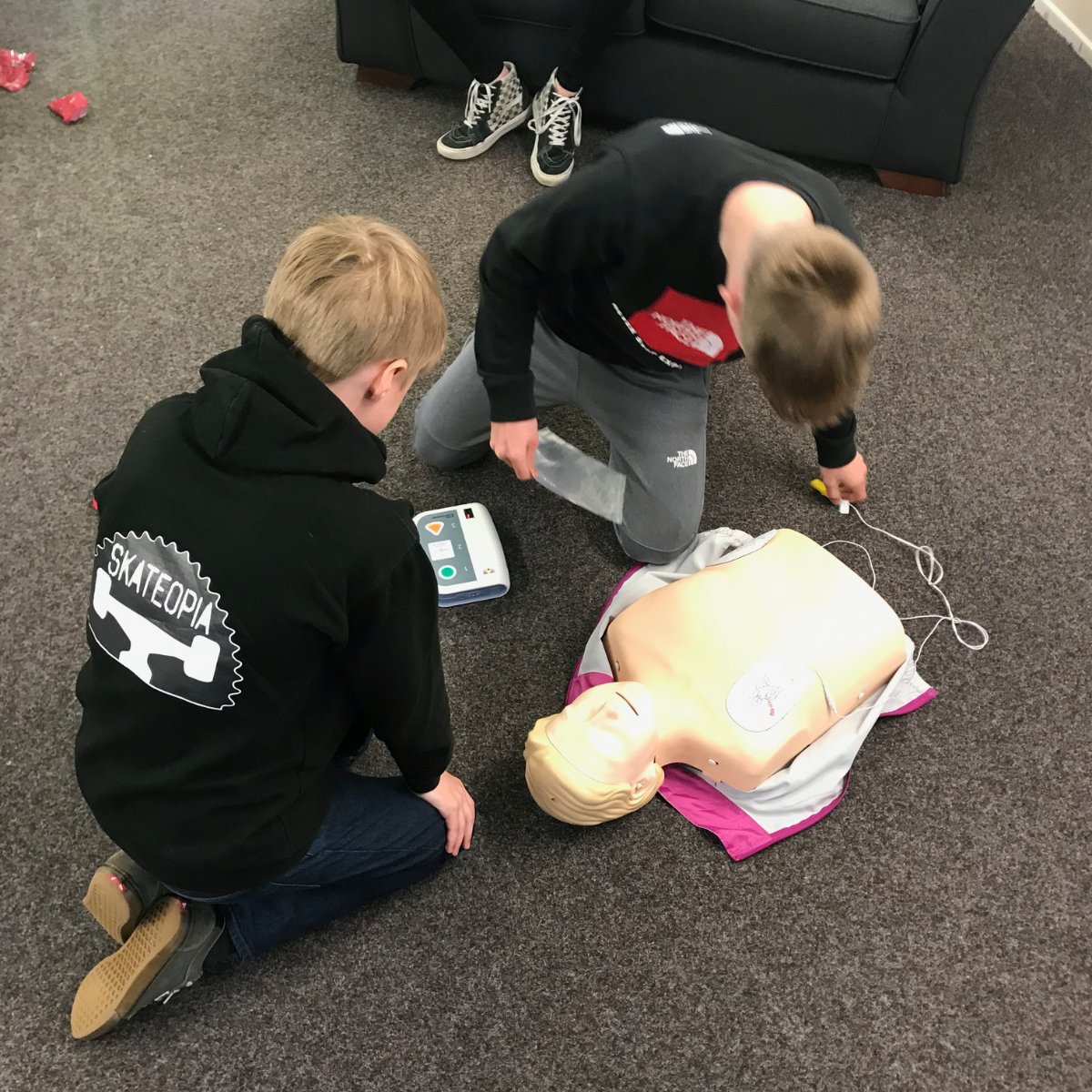First Aid Training
The field of First Aid can be broad and sometimes overwhelming. At FabTraining, we stay committed to keeping up with the latest changes in workplace First Aid legislation, as well as the roles and responsibilities of everyone involved.
The first step in selecting the right First Aid course is understanding the specific needs of your environment. Here are some key questions to consider:
- Is the environment low-risk or high-risk?
- Is First Aid primarily needed for adults, children, or both?
- What level of training is appropriate for the setting?
- How many First Aiders are required?
However, our team is always available to provide expert advice and ensure you make the best choice for your needs!
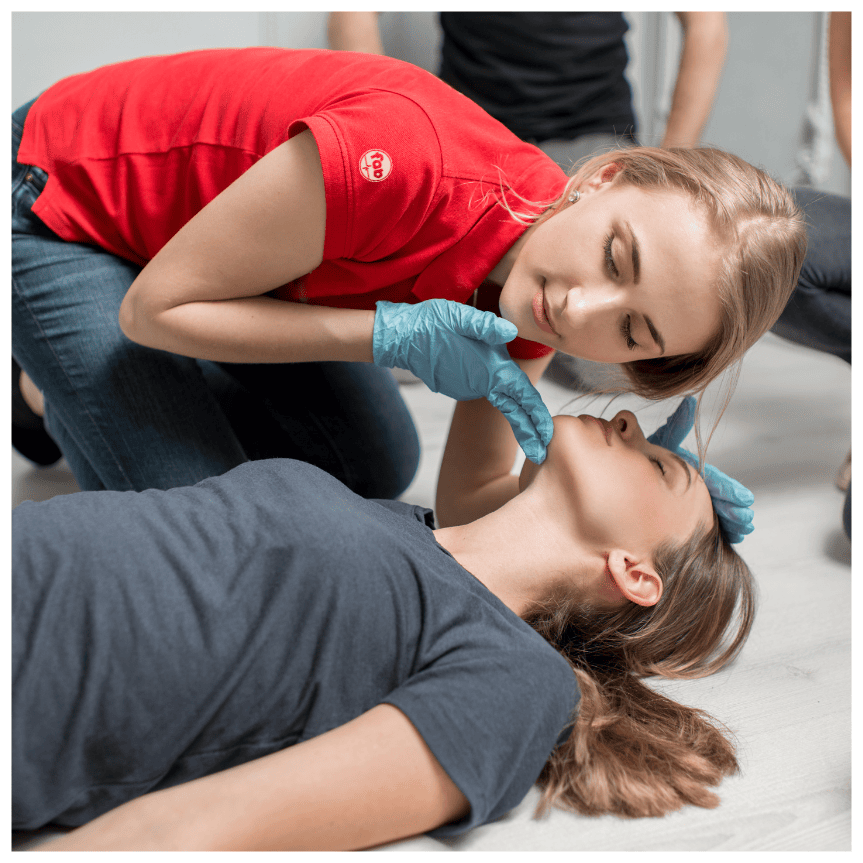
Emergency First Aid at Work
Did you know that there are over 6 million working days lost annually due to non-fatal workplace injuries? Emergency first aid at work (EFAW) is a popular 1-day training course that is designed to provide first aiders with the knowledge and skills they need to respond effectively to emergency situations in the workplace, especially in a lower risk environment, and provide invaluable assistance to the patient. Our comprehensive program offers thorough training in basic first aid techniques including CPR, wound care and handling medical emergencies such as heart attacks and strokes. We prioritise hands-on learning ensuring participants feel confident and capable in real-life situations.
The course involves a series of practical and multiple choice assessments and upon successful completion delegates will receive a certificate valid for 3 years.
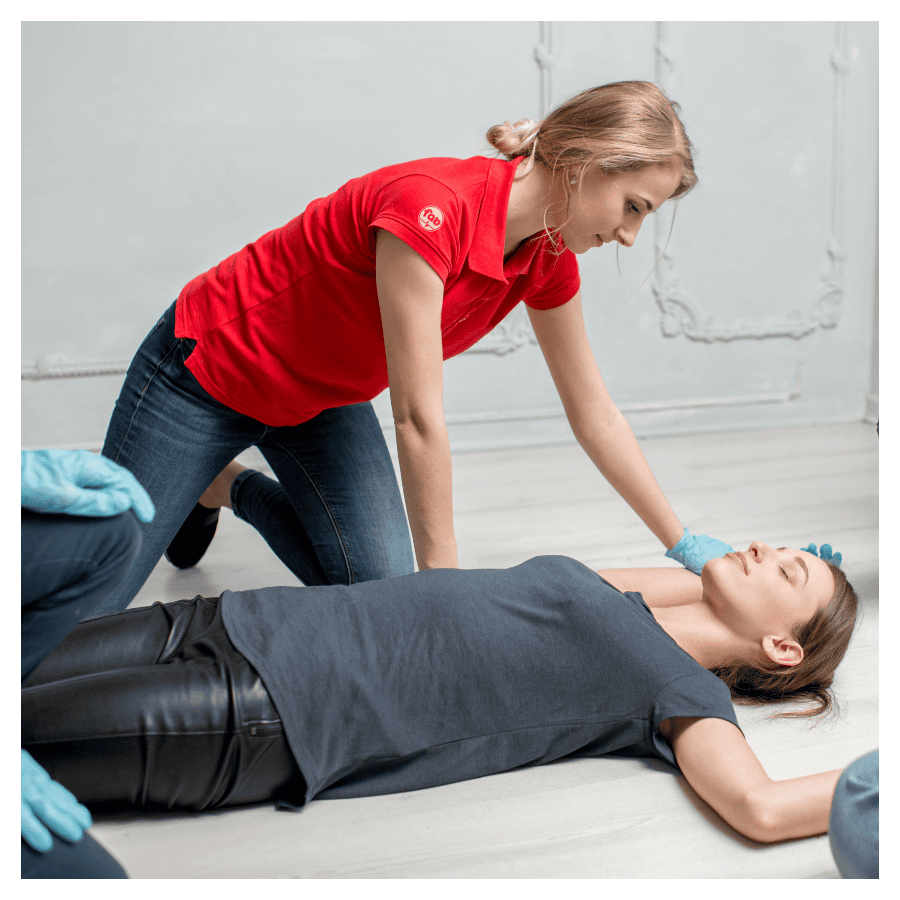
First Aid at Work
Did you know that an estimated 555,000 workers in Britain sustained an injury at work in 2017/2018? The Health & Safety (First Aid) Regulations 1981 require all employers by law to ensure that employees get immediate help if taken ill or injured at work. In any professional environment, quick and effective response to medical emergencies is paramount and this 3 day course is designed to equip employees with the essential skills and knowledge needed to provide immediate assistance in the event of an injury or illness and to meet this requirement. Tailored for those working in a higher-risk environment, in addition to the Emergency First Aid at Work topics our more in-depth course also looks at burns, sprains and strains, poisoning and anaphylaxis. The course involves a series of practical and multiple choice assessments and upon successful completion delegates will receive a certificate valid for 3 years.
Monday 10th June
Tuesday 11th June
Wednesday 12th June (FULL)
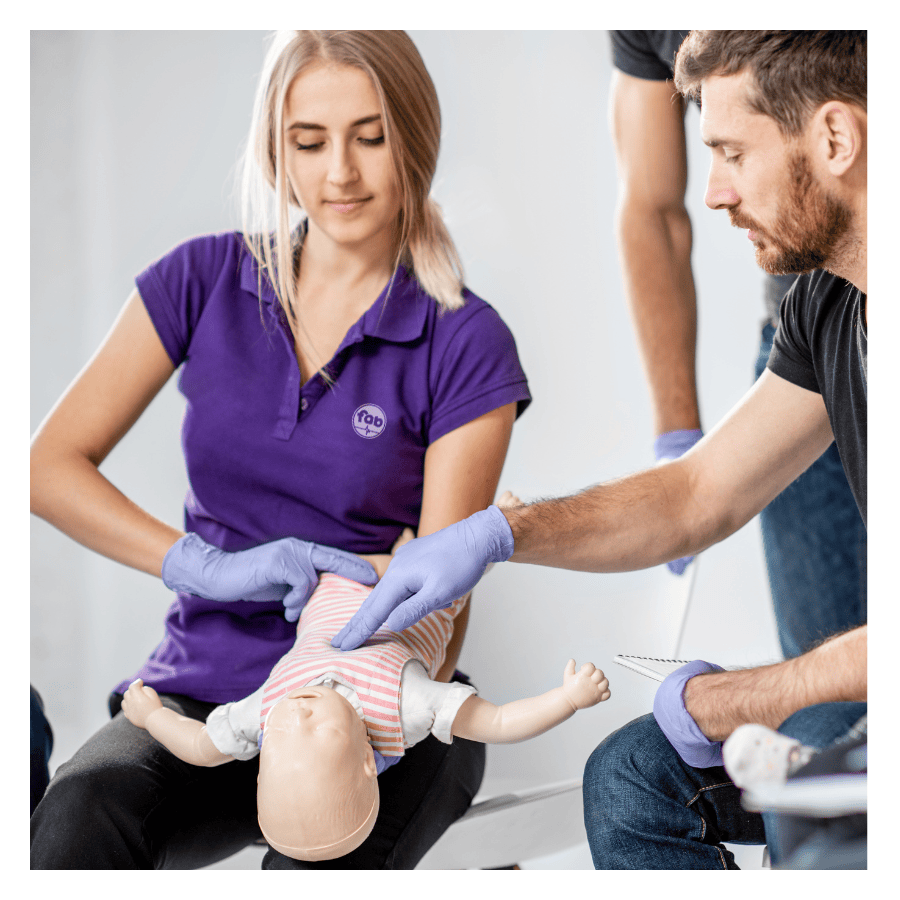
Paediatric First Aid at Work
Do you work with children either in your own home or within a childcare setting? Are you a carer who wants the skills and confidence to deal with a medical emergency involving an infant or child? Does your setting require you or your workforce to meet the criteria of regulatory authorities such as OFSTED and EYFS in relation to your first aid provision? We have a range of Paediatric First Aid courses that meet these requirements and help care givers provide effective first aid to children. Covering topics such a allergies, asthma, choking, febrile convulsions, head injuries, meningitis and much more. The course involves a series of practical and multiple choice assessments and upon successful completion delegates will receive a certificate valid for 3 years.

Outdoor First Aid
Outdoor and Activity first aid courses often focus on teaching participants how to assess and manage common injuries and illnesses that can occur in the wilderness. During this extended 2-day course we look at how to improvise with limited resources, make quick decisions in challenging situations, and provide effective care until professional help arrives. Learners will develop the skills and knowledge needed to deal with a range of outdoor first aid situations, including: how to manage multiple casualties, insulating and providing shelter to casualties, cardiac arrest, blood loss, choking, extremes of temperature, unconsciousness, fractures, head and spinal injuries, drowning, burns, head-to-toe survey, medical conditions and more. The qualification is obtained by successfully completing a series of practical and multiple choice theory assessments.
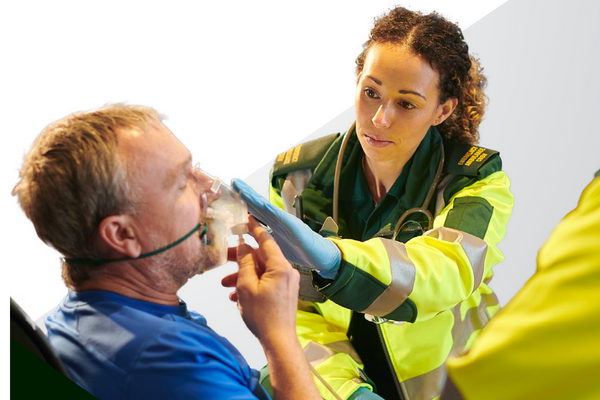
First Response in Emergency Care (FREC)

Pet First Aid

Mini Medics
